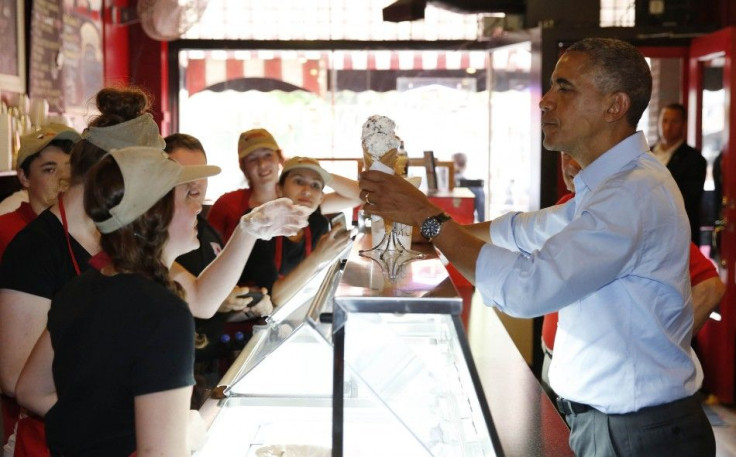Ice Bucket Challenge: Charity Receives $4 Million, President Obama Refuses To Take Part [Video]

U.S. President Barack Obama has declined the challenge of Ethel Kennedy to soak himself with ice water to raise awareness for ALS. On Aug 12, the White House spokesman Eric Shultz said that the President appreciates the challenge put forth by Kennedy, but he will only make monetary contributions for the disease previously called Lou Gehrig's disease.
An idea that is being considered genius taps right into the human condition. The challenge has a competitive nature, brings in the element of laughter and the wish to engage in a good cause or just the desire to be seen doing what is right.
Kennedy has posted a video of herself and family members performing the challenge. People have two options, one is to have ice water poured on them or make a donation to the charity after which they nominate their friends to perform the same.
Martha Roby, Alabama Representative, posted a video of her performing the challenge on Aug 11 and then nominating Congresswoman Renee Ellmers, Congressman Duncan Hunter and Congressman Adam Kinzinger. The Fault in Our Stars actor Ansel Elgort recently accepted the challenge.
The challenge, that has gone viral, has been a fundraiser boost for ALS which has received donations of more than $4 million almost 4 times of what was donated in 2013.
The number of people who've made donations have also gone up three times with the number being around 71,000 this year in comparison to 25,000 from last year.
A lot of people prefer making a donation than accepting the challenge. Those people who are nominated by their friends and don't accept the challenge are expected to make a donation between $10 and $100 based on the demands put forth by the challenger.
The ALS Association wrote on it's Web site, "Amyotrophic lateral sclerosis (ALS), often referred to as "Lou Gehrig's Disease," is a progressive neurodegenerative disease that affects nerve cells in the brain and the spinal cord. Motor neurons reach from the brain to the spinal cord and from the spinal cord to the muscles throughout the body. The progressive degeneration of the motor neurons in ALS eventually leads to their death. When the motor neurons die, the ability of the brain to initiate and control muscle movement is lost. With voluntary muscle action progressively affected, patients in the later stages of the disease may become totally paralysed."





















